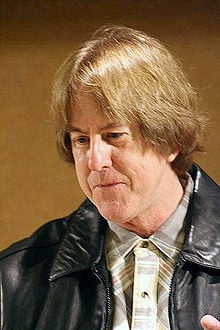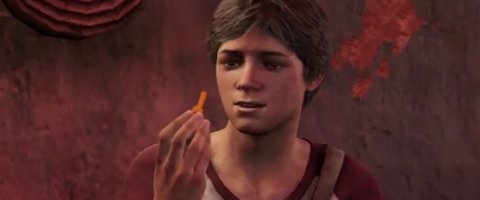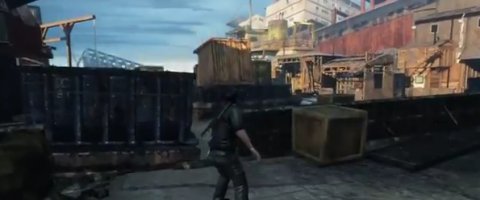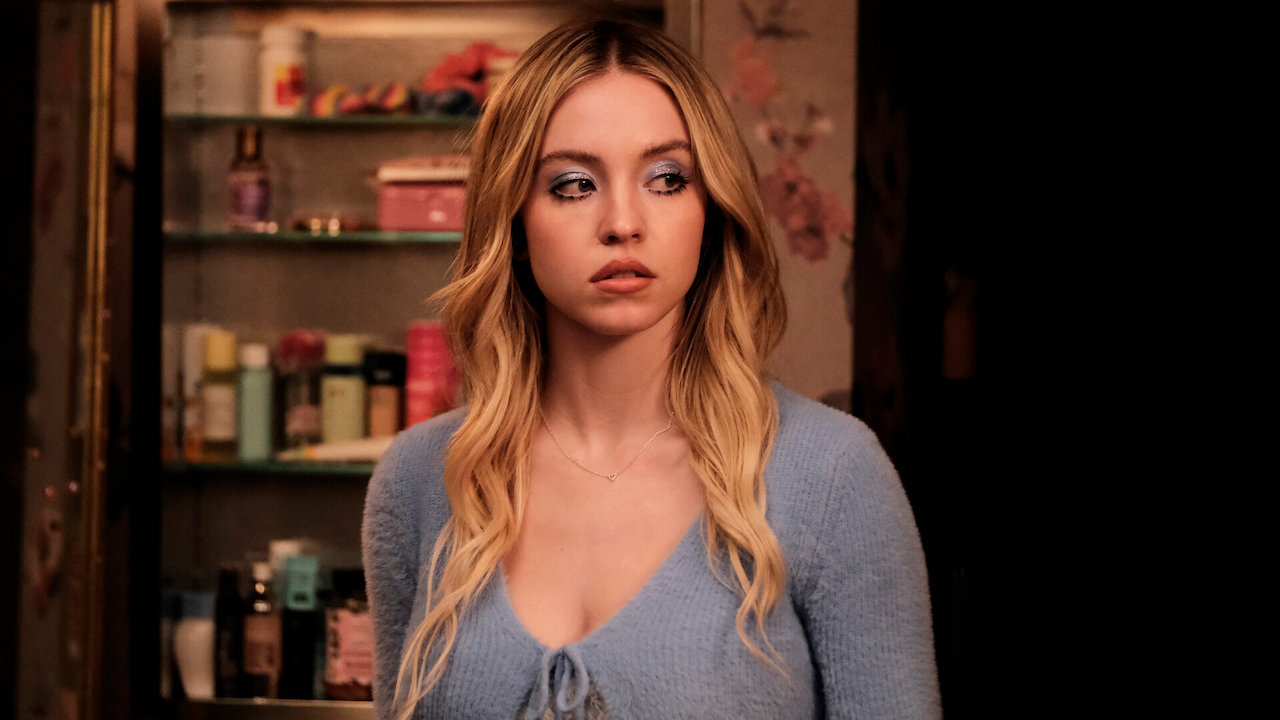Uncharted 3 Interview: Music, Firefly And Uncharted Movie - Part 1

Uncharted 3 from Naughty Dog and Sony Computer Entertainment recently released exclusively for the PlayStation 3 to startling first-week sales. The game is doing exceptionally well thanks to the amazing team at Naughty Dog. Here at Gaming Blend we had a chance to catch up with one of the people responsible for helping Uncharted 3 become the epic video game masterpiece that it is, Greg Edmonson, composer and music writer best known for scoring the cancelled cult-classic TV show, Firefly.
The first part of this interview covers a wide range of music-related topics for the Uncharted series and you can find out how Edmonson scored the job as well as a few other interesting tidbits Uncharted fans might be interested in.

Gaming Blend: So how did get attached to the Uncharted franchise?
Greg Edmonson: It’s kind of an unusual story. I can tell you exactly how that happened. I had done a TV show called Firefly and it had been cancelled; it was a great, great show, a fantastic project. But it just died a premature death. So I was between gigs and [Naughty Dog] was starting to make Uncharted, the very first one, and they were doing a trailer for E3 – which is the big dog and pony show in the industry for the latest and greatest. For whatever reason one of the tracks on the Firefly soundtrack spoke to them and they called and asked if I was interested in doing it.
And I told them, I said ‘Listen, the world of video games is not something I know terribly well and you may be better served with someone who knows that world better’. But they were willing to actually walk me through it and let me learn and I’m thrilled now that they did, because I had so much fun working on that. So that’s kind of how that happened in a nut-shell.
Gaming Blend: You had a lot of experience in composing music for television and movies. When you make the transition over into games how do you approach the material differently than when you work on a TV show or a movie? Or is it basically all the same no matter what medium it is?
Greg: Well I think the process is different for a number of different reasons. If I had to say what the primary reason was I would say this: If you’re working on a TV show or a film, by the time they give you the picture it’s completely done. It’s shot, it’s edited. It’s ready for you to do what you’re going to do to it. So you spot it and then they’ll say ‘Well music should come in here, it should accomplish this or go out here’ and you’re pretty much good to go.
Your Daily Blend of Entertainment News
Video games are very different because they’re really developed over at least a two year time frame. So when you first start writing music, the game what it’ll look like at the end doesn’t exist. You may have some very, very rough animations or rough drawings, but it’s going to be months before it looks like what it’s finally going to look like. So you get to use your imagination a lot and you need really good guidance, you need people who can walk you through and say ‘here’s what we’re going to need in this level’…and it really becomes a team effort in a different way than a TV show or a film because, you know, you really have to use your imagination.
Part of that is actually liberating. Because you know, maybe it means you can write some big themes or maybe you can write some stuff and just see if it works. Man I’ve got to tell you that Sony and Naughty Dog have been wonderful about giving me lots of leeway and letting me write stuff and hope that it finds a place in the game and it always seems to. So I would say the process is different in that way.
Gaming Blend: A lot of soundtracks have a few good tunes and the rest are ambient pieces to round the experience. Such as an epic theme or two and the rest is mostly filler. With the Uncharted 3 soundtrack just about every track stands out with top notch quality. Was it a requirement from the producers that each track needed to stand on its own as if it were being attached to a blockbuster set piece or did you decide that was the direction you wanted to take with the music for the game?
Greg: Here’s another difference between a film or TV show and a video game: In a film or TV show we basically discuss that you’re writing to the picture. So if you have a more ambient scene you may write a piece more ambient in nature. One of the things that they do in video games is that since the total experience is going to be about a 10 hour run or something like that, sometimes they have to deconstruct the music.
So in other words, sometimes if you have a big action cue and the player starts off and he’s not in any particular danger and he’s going to be doing some exploring, so they might take that piece of music and instead of playing the whole thing at once, let’s just play the low strings. And let’s let it kind of develop and then as the player gets into more difficulty or something changes, then we’ll start to bring in the horns or another element. So sometimes you just write the complete piece of music and then the deconstruction might be able to give you the ambient cue that you might be able to accomplish in a film or a TV show.

Gaming Blend: Uncharted 3 is a very cinematic game and the gameplay itself is about as important as the story-oriented cinematics. Is it ever a matter of focusing more of your time and efforts on fine tuning the score to help engage players while they’re traversing through a level or putting extra attention and detail into a cue that helps fuel the emotion during a pivotal cinematic moment?
Greg: In a case like you described I would write a piece of music for that. I would write a piece of music that would either be exploring music or ambient music. Something that just kind of floats. So you’re waiting for something to happen but it’s not happening yet. So the music doesn’t need to be busy or fully fleshed out, it just kind of needs to go where you are emotionally in the game. So in that case I would go ahead and write some, but we’ve got ambient and exploring music but we’ve also got a lot of action cues because there’s a lot of action in this game. Hopefully we covered all the bases; at least I think we did.
Gaming Blend: When you’re putting together a soundtrack for a blockbuster game, is it daunting trying to come up with material when there are certain kinds of expectations from the franchise and you have to compose music around those expectations?
Greg: Number one was the very first game and it was my first game, at this point I’ve only done three games, Uncharted 1, 2 and 3. So the first one they were finding their way, I was finding my way and the game engine was not as sophisticated as it is today. So for the first [Uncharted] they said ‘be careful of too many melodies for the gameplay, because if the player decides to stay in an area for a period of time and the melody comes around every few bars because we’re looping it, it’s going to become irritating and distracting because it won’t serve the gamer’s experience’. So I wrote a more ambient score for the first [Uncharted].
For number two, the game engine had become more sophisticated and plus I wanted to write more music that felt like it had more melodic content and shape to it and we were in a different locale. In [Uncharted: Drake’s Fortune] we were in the jungle where ambient stuff works much better. [Uncharted: Among Thieves] we were in Tibet, and it was more like a wide-open cinematic look to it, with big gigantic yawning vistas and that stuff just kind of begs for different kind of music than an ambient score.
So Uncharted 2 was a huge success, a huge critical success for [Naughty Dog] and it is true that going into [Uncharted 3] we were all conscious that we were going to need to raise our own personal bar, so that it wasn’t just resting on your laurels but to exceed what you did last time and that’s always hard to do. You try, but you never know how it’s going to work out because art is just art and it starts to take on a life of its own. But in all honesty, I think we absolutely did.
You look at what they accomplished with the graphics and the pacing and the way it was put together, and I am thrilled with what Naughty Dog accomplished.

Gaming Blend: Listening to the soundtrack, I’ve got to say that the quality and orchestration for each track was absolutely top notch. How long did it take you to come up with the musical score for Uncharted 3?
Greg: It’s kind of a process where you do something and because the game is in a constant state of development and will be until the very end. At the very opening you really don’t have to work all day every single day. You develop ideas and you toss out ideas and wait to see how the game is going to develop, and it starts to build in intensity until the very end. In a weird way I might have been involved for two years, but it wasn’t actually working hard for two years.
Again, you’re waiting for the game to develop because it all changes. It’s one of the interesting things about games and one of the big differences between a TV show and a film. A TV show or film they have a script, you know exactly what you’re going to shoot, you find out how many days you have to shoot it and you got out there and you shoot it.
Games, as they develop, they start to change. There might be an area of the game that you thought would be super exciting and you plan for the gamer to be there for maybe 45 minutes. But as it develops, you find out it’s working less well than you thought so you’re going to knock 20 minutes off that. Well that changes the music, that changes the script, it changes the actor performances, so really someone has to go in and manipulate that script. So when all is said and done it feels like a conscious decision from the beginning to end all while you’re still being adaptable to those changes that requires a whole lot from the writers and a whole lot from the actors. And it changes my world, too, so the music changes.
Gaming Blend: It’s funny you should mention getting stuck in an area for like 45 minutes because I remember during the SNES and Sega era getting jammed in a section of the game for like half-an-hour listening to the same tune over-and-over again while that song continuously repeats, which usually created a lot of frustrations. There were parts in Uncharted where it was easy to get stuck, especially with some of the puzzles, and how do you approach making music for those areas where gamers are bound to get stuck?
Greg: You know, at this point I try to do something a little bit different than that. At this point I just try to write something that at least I perceive to be cinematic. So however much or how little they use of it, it somehow makes you feel like you’re involved in a movie or sort of a cinematic experience. And part of it is the implementation…I write music but Sony’s Jonathan Mayer and his team do the implementation into the game and they’re all great musicians in their own right and wonderful gamers. So they’re always conscious and they mix stuff up.
One of the things that’s kind of fun about games is that even if you wrote a piece for a certain level in the game, when it’s all said and done you may find that works just as well or even better in another level. And also, because the game engine has become more sophisticated you can mix and match instead of just looping. Let’s say we have a piece of music that’s in a puzzle, once we’re kind of done with that piece of music we don’t just have to loop it and go right back to that piece of music, we can go to another piece of music that was used in the earlier part of the game or something that’s going to come up later in the game. So you can mix music and build a better experience when you mix music that way rather than the old concept of just looping, looping, looping, looping, looping.
Gaming Blend: Do you find that having the television and film background helped to shape the Uncharted soundtrack, And did it affect how you approached writing music for the Uncharted series?
Greg: I think both of those things are true. I’ve learned so much from working with games and again part of it is working with such a great group of people. And you know, this is a team effort it’s not just me writing the music, it’s the story, the actors, the graphics, the implementation of the music, it has to be a team effort of everybody kind of pushing together.
At this point, probably the way I write comes out of my TV and film experience because it just makes sense to me the way I write music. I think I can do it in a way that feels cinematic. But again, if I do something that isn’t working the Sony team will find a way to make it work when they implement it into the game.
(Stay tuned in for part 2 of the interview or check out the Uncharted 3 review to find out more about the game.)
Staff Writer at CinemaBlend.

